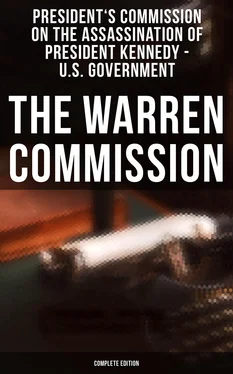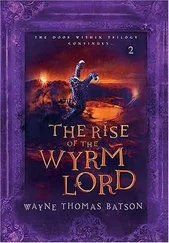Mr. Oswald. Sir, I remember somewhat vividly my reply to him—my reply to his letter——
Mr. Jenner. You did reply to the letter of November 26th?
Mr. Oswald. Yes, sir.
Mr. Jenner. Would you please state what your reply was?
Mr. Oswald. I did reply to the letter of November 26, 1959, and it was—and I believe until this day remains to be the longest letter I ever wrote.
Mr. Jenner. All right—tell us about it.
Mr. Oswald. I answered all the questions as to—if I may refer to the first question.
"Do you remember the time you told me about the efforts of your milk company to form a union? Try to see why workers must form unions against employers in the United States."
I recall I did reply to that statement.
Mr. Jenner. What did you say?
Mr. Oswald. It was my opinion—and I am not anti-union or pro-union. I believe it should be taken on the basis of the individual companies. It was my opinion that I expressed to him at that time that in this country, the employees did have a right to vote yes or no whether or not they wanted a union, and in this particular instance, the union was voted out.
Mr. Dulles. Could we just have a moment's pause?
(Brief recess.)
Mr. Dulles. Will you proceed?
Is it all right to proceed?
Mr. Oswald. Yes, sir; please.
Mr. Jenner. You were reciting what you said in your letter of response to the letter of November 26.
Mr. Oswald. All right, sir, if I may pause a moment to locate the second question or some statement that perhaps I recall referring to directly in my reply—I recall replying to the statement that was, that is contained, on the second page of the letter of November 26, to the latter part of this statement that I will quote from: "See the segregation, see the unemployment and what automation is. Remember how you were laid off at Convair?"
I am referring now to the last question of "Remember how you were laid off at Convair?"
Mr. Jenner. Yes.
Mr. Oswald. I believe I pointed out to him at that time that this was something I was aware of when I accepted the job at Convair in Fort Worth, Texas. It was a condition, perhaps an unspoken condition, because it was a government job in that when I was laid off, I did not have to go only to the government to look for employment but I was able to secure the type of employment that I was most interested in at that time or that he had a variety to choose from and that no one would say to me that, "You work here or there."
Mr. Jenner. Did you experience any bitterness in being laid off at Convair?
Mr. Oswald. No, sir.
Mr. Jenner. Resentful?
Mr. Oswald. No, sir; I do not.
Mr. Jenner. What was your reaction?
Mr. Oswald. My reaction since I have been laid off at Convair and when I was laid off at Convair I felt like it was the best thing that ever happened to me.
Mr. Jenner. When did that event take place?
Mr. Oswald. In August, 1957, sir.
Mr. Jenner. All right.
Proceed with your recollection of your reply to this letter.
Mr. Oswald. If I may, sir, continue to answer something along the question of how I felt or reacted to my layoff at Convair; the reason why I recall the date is because my daughter was born two or three days after I was laid off, and I knew I was going to be laid off before she was born and I did not tell my wife and I recall that quite vividly.
Thank you.
Mr. Jenner. I think I will ask you an additional question about that, if I may, please.
Mr. Oswald. All right, sir.
Mr. Jenner. Was there any discussion, at least in Lee's presence, regarding your being laid off at Convair and your attitude with respect thereto.
Mr. Oswald. No, sir; none that I recall.
Mr. Jenner. And where was he—let's see, 1957, he was in the Marines then.
Mr. Oswald. Yes, sir; that is correct.
Mr. Jenner. I take it then sometime along the line you had advised him that you were no longer with Convair.
Mr. Oswald. Yes, sir; I feel certain like I did.
Mr. Jenner. Perhaps you wrote him to that effect or you told him about it when he was on leave in 1958.
Mr. Oswald. I would feel like perhaps I wrote him about it.
Mr. Jenner. And to the best of your recollection did you indicate any resentment or bitterness in that regard?
Mr. Oswald. No, sir. As I have never been resentful to that or bitter about it.
Mr. Jenner. So that at least, as far as you can recall, any statement you made or any attitude you have with respect to your layoff which might have come to his attention, did not form a basis for his predicating the Convair comment, on which he might have predicated the Convair comment, in his letter of November 26?
Mr. Oswald. That is correct, sir.
Mr. Jenner. All right. Proceed.
Mr. Oswald. I also——
Mr. Jenner. Excuse me, if I asked you a similar line of questions with respect to the union question would your answer be the same?
Mr. Oswald. Yes, sir; It certainly would.
Mr. Jenner. You never expressed any dislike of unions. You never expressed to him, or in his presence, or members of your family, views that unions were exploited?
Mr. Oswald. No, sir; I did not.
Mr. Jenner. All right.
By the way, had there been any discussion in the course of your youth, as you boys grew up, expressions in your family of any of these attitudes that he is expressing in his letter of November 8 and his letter of November 26?
Mr. Oswald. No, sir. To my knowledge there was never any type of discussion that would reflect any of the statements or questions that he wrote in his letter of November 26, 1959.
Mr. Jenner. Would you say to the extent there were discussions among you, and your family life, that the contrary was expressed?
Mr. Oswald. I do not recall any discussions, sir, but if there was any discussion it would have been to the contrary.
Mr. Jenner. Your family was always a typical, loyal American family?
Mr. Oswald. That is correct, sir.
Mr. Jenner. That is, loyal to the Government of the United States and you thought well of it?
Mr. Oswald. Yes, sir.
Mr. Jenner. When I say, you, I mean all of the members of your family as far as you knew?
Mr. Oswald. Yes, sir; that is correct.
Mr. Jenner. All right.
Proceed with your recollection of your response.
Mr. Oswald. I refer to his statement in the letter of November 26 on the second page, "I can still see Japan and the Philippines and their puppet governments. More important, I can see the Americans in uniform, men who were there because they were drafted or because they were adventurers or unemployed in civilian life."
I referred to my own volunteering in the United States Marine Corps at that time, and I felt that nothing he pointed out there applied to my case, and I felt quite a few other men felt as I did, as to the reasons behind their joining the United States service.
Mr. Jenner. Had you expressed any dissatisfaction to him with your tour in the Marines, or was that subject discussed in family councils or visits on his part to Fort Worth?
Mr. McKenzie. May I for just a moment?
(Discussion off the record.)
Mr. Oswald. Would you repeat the question, I believe I had it; I want to be sure of it.
(The question was read.)
Mr. Oswald. I do not believe that at any time we discussed it. We might have mentioned my tour in the United States Marine Corps. He was very proud of my service record and it would so indicate that I conducted myself in the best tradition of the United States Marine Corps; not that I was any lily white, but I was never in any serious trouble and I progressed in rank in keeping with the period that I was in the United States Marine Corps.
Mr. Jenner. Had that thought been expressed, or at least that flavor left, with the members of your family?
Читать дальше












